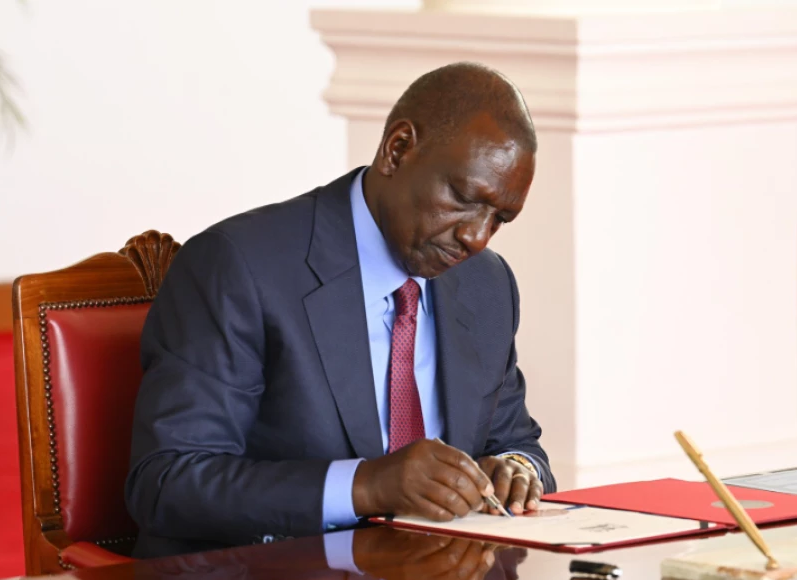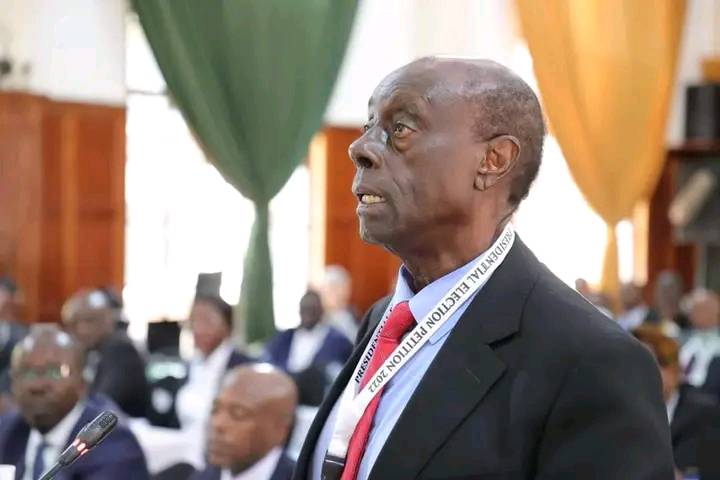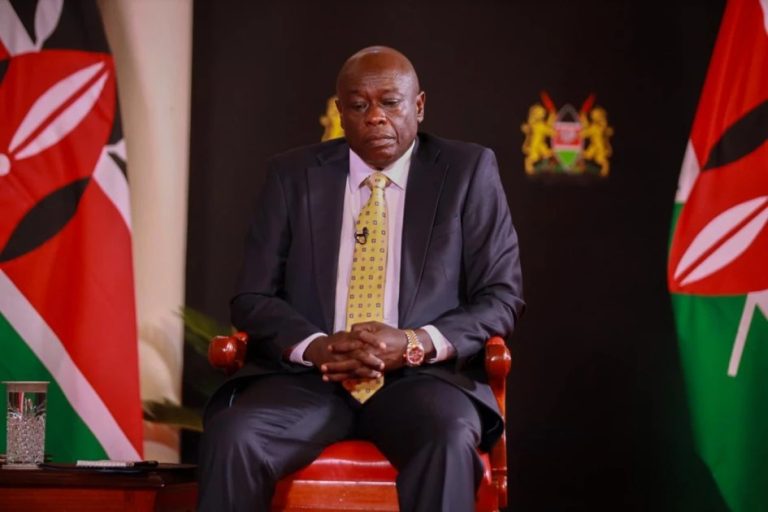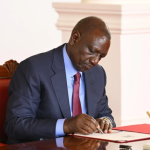President William Ruto has officially signed the 2025 Finance Bill into law. He did this on Thursday morning at State House, Nairobi.
just a few days after Members of Parliament (MPs) passed the proposed law. This marks a key step in shaping how the country will raise and spend money in the next financial year.

No New Taxes This Time — But Controversy Remained
Unlike last year’s Finance Bill that sparked deadly protests across the country, the 2025 version avoided introducing new taxes.
This was a relief to many Kenyans who had feared a repeat of the 2024 demonstrations, which were largely led by angry youth protesting against high living costs and increased taxation.
However, the bill was not without controversy. One of the most debated proposals included a clause that would have given the Kenya Revenue Authority (KRA) the power to access people’s personal and financial information — including bank records.
This sparked major concerns over privacy, with critics warning that it could lead to abuse of power and violate citizens’ rights.
In the end, MPs voted to remove this clause before forwarding the bill to the President for approval.
This decision followed public pressure and concerns raised by civil rights groups and legal experts.
Treasury Targets Higher Revenue
Earlier this month, Treasury Cabinet Secretary John Mbadi presented Kenya’s 2025/26 national budget in Parliament.
The total budget is valued at Ksh.4.2 trillion, and the government hopes to raise Ksh.30 billion from measures introduced in this year’s Finance Bill.
These revenues will help the government fund essential services such as health, education, infrastructure, and security.
The Treasury believes that these funds are crucial for keeping government operations running smoothly and delivering on development promises.
Ruto Also Signs Appropriation Bill
At the same time, President Ruto signed the 2025 Appropriation Bill into law. This bill allows the Treasury to spend up to Ksh.1.88 trillion from the Consolidated Fund in the 2025/26 financial year. These funds are used to support key government operations across all ministries and state departments.
Additionally, the new law authorizes the use of Ksh.672 billion in Appropriation-in-Aid (AIA). This is money that ministries and departments are allowed to raise and spend on their own — for example, through fees, fines, and service charges — as approved by Parliament.
Final Word
In summary, while the 2025 Finance Bill avoided the extreme backlash of last year, it still faced pushback over certain controversial proposals.
Through debate, public concern, and final changes, Parliament managed to shape a version of the bill that the President found acceptable.
Now, the focus shifts to how the government will implement these measures — and whether they will truly help improve the lives of ordinary Kenyans.
Follow https://kenyaonline.xyz












